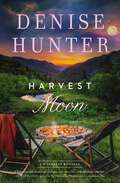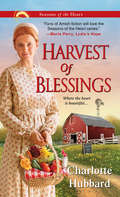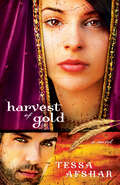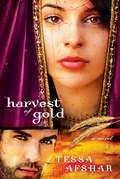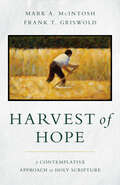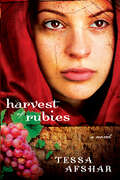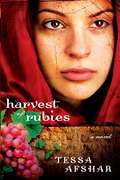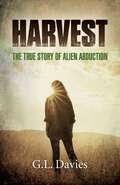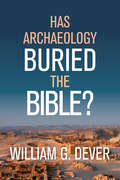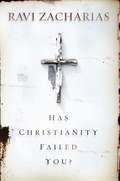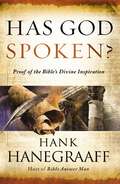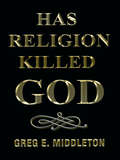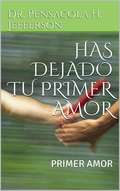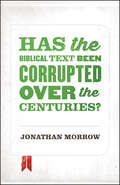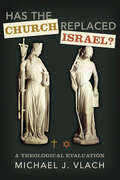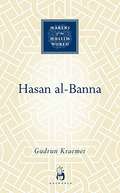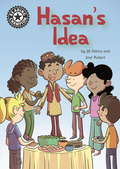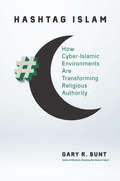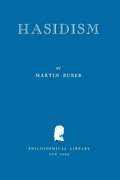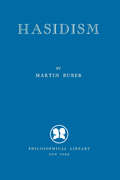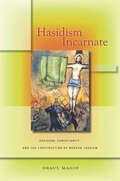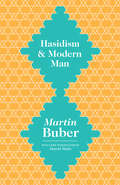- Table View
- List View
Harvest Moon (A Riverbend Romance #3)
by Denise HunterShe thought he was arrogant. He thought her walls would never come down. Then they fell in love.Forever walking the line between passion and conflict, Laurel and Gavin&’s relationship ended in divorce after years of miscommunication and unmet expectations. Now pursuing their own separate lives and careers, the two are content . . . though not completely happy.When their best friends, Mike and Mallory, are killed in a plane crash, Laurel and Gavin are stunned to learn they&’ve been named guardians of their friends&’ young daughter, Emma. Putting their differences aside, the estranged couple search for a suitable guardian as they care for Emma and manage Mike and Mallory&’s apple orchard.Soon tempers flare—as does the passion they both remember so well. And Laurel and Gavin find themselves working through their past—their mistakes, their miscommunications, and ultimately the tragedy that ended their marriage.Will the seeds of love, still growing inside them, thrive and flourish? Or will grief and regret strangle the feelings before they can fully blossom?&“A beautiful tale of second chances, self-sacrifice, and renewed romance.&” —Pepper Basham, author of The Heart of the Mountains and Authentically, IzzySweet and thoughtful contemporary readBook 1: Riverbend Gap; Book 2: Mulberry Hollow; Book 3: Harvest MoonBook length: approximately 80,000 wordsIncludes discussion questions for book clubs
Harvest of Blessings (Seasons of the Heart #5)
by Charlotte HubbardFollowing Breath of Spring, a homecoming tests the town of Willow Ridge. &“Fans of Amish fiction will love the Seasons of the Heart series.&”—Marta Perry, national bestselling author The tranquil little town of Willow Ridge is facing a startling challenge. Wealthy Nora Glick Landwehr is determined to make it her home again—and put her past to rest. Cast out by her own family, Nora can&’t reconcile with Old Amish ways or her strict father. But she&’ll do anything to help her community embrace the future . . . and make amends to the daughter she had to give up. So, she certainly has no time for her reckless new neighbor Luke Hooley. They disagree about almost everything. And how can she trust him if he always seems to believe the worst about her? Somehow, though, his unexpected support and passionate heart are helping her find her own way in faith. And Nora will discover that even in the face of insidious lies and unyielding judgment, God creates unexpected chances for forgiveness—and love. Praise for Charlotte Hubbard and the Seasons of the Heart series &“A heartwarming new voice for fans of Beverly Lewis.&”—Emma Miller, author of An Amish Mystery series &“The warm and supportive town of Willow Ridge will appeal to readers who appreciate the traditional values and neighborly ways of the plain folk.&”—Publishers Weekly &“These very special books will sit proudly on my keeper shelf!&”—Romance Reviews Today
Harvest of Gold
by Tessa AfsharA hidden message, treachery, opposition, and a God-given success will lead to an unlikely bounty.In Harvest of Gold (Book 2), the scribe Sarah married Darius, and at times she feels as if she has married the Persian aristocracy, too. There is another point she did not count on in her marriage—Sarah has grown to love her husband. Sarah has wealth, property, honor, and power, but her husband&’s love still seems unattainable. Although his mother was an Israelite, Darius remains skeptical that his Jewish wife is the right choice for him, particularly when she conspires with her cousin Nehemiah to rebuild the walls of Jerusalem. Ordered to assist in the effort, the couple begins a journey to the homeland of his mother&’s people. Will the road filled with danger, conflict, and surprising memories, help Darius to see the hand of God at work in his life—and even in his marriage?
Harvest of Gold
by Tessa AfsharA hidden message, treachery, opposition, and a God-given success will lead to an unlikely bounty.In Harvest of Gold (Book 2), the scribe Sarah married Darius, and at times she feels as if she has married the Persian aristocracy, too. There is another point she did not count on in her marriage—Sarah has grown to love her husband. Sarah has wealth, property, honor, and power, but her husband&’s love still seems unattainable. Although his mother was an Israelite, Darius remains skeptical that his Jewish wife is the right choice for him, particularly when she conspires with her cousin Nehemiah to rebuild the walls of Jerusalem. Ordered to assist in the effort, the couple begins a journey to the homeland of his mother&’s people. Will the road filled with danger, conflict, and surprising memories, help Darius to see the hand of God at work in his life—and even in his marriage?
Harvest of Gold (Harvest of Rubies #2)
by Tessa AfsharA hidden message, treachery, opposition, and a God-given success will lead to an unlikely bounty. In Harvest of Gold (Book 2), the scribe Sarah married Darius, and at times she feels as if she has married the Persian aristocracy, too. There is another point she did not count on in her marriage--Sarah has grown to love her husband. Sarah has wealth, property, honor, and power, but her husband's love still seems unattainable. Although his mother was an Israelite, Darius remains skeptical that his Jewish wife is the right choice for him, particularly when she conspires with her cousin Nehemiah to rebuild the walls of Jerusalem. Ordered to assist in the effort, the couple begins a journey to the homeland of his mother's people. Will the road filled with danger, conflict, and surprising memories, help Darius to see the hand of God at work in his life--and even in his marriage?
Harvest of Hope: A Contemplative Approach to Holy Scripture
by Frank T. Griswold Mark A. McIntoshEncountering the living Word in the words of the Bible When we read Scripture, we learn about God. When we pray the Scriptures, we experience the mystery of Jesus Christ and inhabit his life. In this book, Mark McIntosh and Frank Griswold bring to bear their decades of combined experience in both the church and the academy to introduce and explore the idea of praying the Scriptures. As McIntosh and Griswold demonstrate, this contemplative approach to the Bible integrates theology and spirituality and fosters genuine hope by bringing us into an encounter with the living Word. After first laying the foundation of what it means to pray the Scriptures, the authors guide the reader through vital biblical passages from different points in the church year, showing how the seasons of the liturgical calendar provide the soil in which the seeds of the Gospel can be nourished by the Holy Spirit, yielding in time a harvest of hope.
Harvest of Rubies
by Tessa AfsharThe prophet Nehemiah's cousin can speak numerous languages, keep complex accounts, write on rolls of parchment and tablets of clay, and solve great mysteries. There is only one problem: she's a woman in a man's court. In her early childhood years, Sarah experienced the death of her mother and her father's subsequent emotional distance, and she came to two conclusions: God does not care about me, and my accomplishments are the measure of my worth.Catapulted into the center of the Persian court, Sarah is working too many hours, rubbing elbows with royalty, and solving intrigues for the Queen. Ironically, it isn't failure—but success—that causes Sarah to lose her only source of external validation. Sarah soon learns that she has something of worth to offer beyond her ability with languages and sums; her very being proves to be a blessing to others, particularly the aristocrat Darius, whom she is given to in marriage.Sarah and Darius' story continues in Harvest of Gold. Darius may be able to learn to love his wife, but can he ever learn to trust Sarah and her Lord?
Harvest of Rubies
by Tessa AfsharThe prophet Nehemiah's cousin can speak numerous languages, keep complex accounts, write on rolls of parchment and tablets of clay, and solve great mysteries. There is only one problem: she's a woman in a man's court. In her early childhood years, Sarah experienced the death of her mother and her father's subsequent emotional distance, and she came to two conclusions: God does not care about me, and my accomplishments are the measure of my worth.Catapulted into the center of the Persian court, Sarah is working too many hours, rubbing elbows with royalty, and solving intrigues for the Queen. Ironically, it isn't failure—but success—that causes Sarah to lose her only source of external validation. Sarah soon learns that she has something of worth to offer beyond her ability with languages and sums; her very being proves to be a blessing to others, particularly the aristocrat Darius, whom she is given to in marriage.Sarah and Darius' story continues in Harvest of Gold. Darius may be able to learn to love his wife, but can he ever learn to trust Sarah and her Lord?
Harvest of Rubies (Harvest of Rubies #1)
by Tessa AfsharThe prophet Nehemiah's cousin can speak numerous languages, keep complex accounts, write on rolls of parchment and tablets of clay, and solve great mysteries. There is only one problem: she's a woman in a man's court. In her early childhood years, Sarah experienced the death of her mother and her father's subsequent emotional distance, and she came to two conclusions: God does not care about me, and my accomplishments are the measure of my worth. Catapulted into the center of the Persian court, Sarah is working too many hours, rubbing elbows with royalty, and solving intrigues for the Queen. Ironically, it isn't failure--but success--that causes Sarah to lose her only source of external validation. Sarah soon learns that she has something of worth to offer beyond her ability with languages and sums; her very being proves to be a blessing to others, particularly the aristocrat Darius, whom she is given to in marriage. Sarah and Darius' story continues in Harvest of Gold. Darius may be able to learn to love his wife, but can he ever learn to trust Sarah and her Lord?
Harvest: The True Story of Alien Abduction
by G.L. DaviesG.L Davies invites you to join him on his most terrifying investigation yet. In 2009 one woman from Pembrokeshire believed she was abducted by aliens. What followed was a terrifying ordeal of alien visitation, nightmarish visions, encounters with terrifying creatures, a connection to the past and a prophecy of destruction on the scale never before seen in Pembrokeshire&’s peaceful history. Should these events be true, then no one is safe. The harvest has begun… 'Masterfully written and a terrifying true journey into Alien Abduction. The benchmark for all paranormal accounts from the greatest paranormal author of his time.' Mysterious Radio
Has Archaeology Buried the Bible?
by William G. DeverBringing the Bible and ancient Israel into a new and brighter light In the last several decades, archaeological evidence has dramatically illuminated ancient Israel. However, instead of proving the truth of the Bible—as an earlier generation had confidently predicted—the new discoveries have forced us to revise much of what was thought to be biblical truth, provoking an urgent question: If the biblical stories are not always true historically, what, if anything, is still salvageable of the Bible&’s ethical and moral values? Has Archaeology Buried the Bible? simplifies these complex issues and summarizes the new, archaeologically attested ancient Israel, period by period (ca. 1200–600 BCE). But it also explores in detail how a modern, critical reader of the Bible can still find relevant truths by which to live.
Has Christianity Failed You?
by Ravi ZachariasIn 2006, Ravi Zacharias International Ministries (RZIM) held an open forum at the Fox Theater in Atlanta to address the subject: “Has Christianity Failed You?” Tickets were sold for the event and—to the complete surprise of everyone—the event was sold out with a capacity crowd of over 5,000. People lined up offering to buy tickets from folks in line for higher prices. Before the event, an RZIM cameraman walked the streets and asked people if they had rejected the faith they held at one time. One answered that, because of a Christian’s rejection of his gay lifestyle he had done just that. Another answered that she had left her faith because she had fallen into adultery and could never live it down in the church. Others had their own reasons. Some said it was just intellectually untenable in an age of reason. They chose to come to the event to judge if there were adequate answers. It is estimated that for every one person who writes a letter or attends an event, there are one thousand who agree. If the Atlanta crowd was any indication, the question is real and troubling. Why is it that many live with silent doubt, many leaving the “evangelical fold” for something else? Is there something wrong with the message, the communicator, the hearer…or is it all three? It’s time to ask the hard questions of what it means to be a follower of Jesus Christ and why it seems as though God has made it so hard to continue believing. In fact, the son of a prominent U.S. Senator phoned me with that very question. “Why has God made it so hard to believe in Him?” Such skepticism is not just representative of the hostile; it also represents many honest questioners. This book attempts to lay out the response to those within as well as those outside the Christian faith so as to understand what it is we believe and why it is so hard to do so. More to the point: Why it is actually so hard to deny God and still make sense out of life? In the end the answers should be both felt and real, with the added truth that God is nearer than you think. He desires that we sense Him very near to us and not distant. But closeness comes at a cost just as any relationship of love and commitment does.
Has God Spoken?: Proof of the Bible?s Divine Inspiration
by Hank HanegraaffAre Christians Guilty of Blind Faith, or Is The Bible Really God's Inspired Word?Can You Ever Know For Sure?Join best-selling author Hank Hanegraaff for a stirring defense of the Bible as the Word of God and your only reliable foundation for life. In answering the riveting question, "Has God spoken?", Hanegraaff uses manuscript evidence, archeology, predictive prophecy, and much more to memorably demonstrate that the Bible is divine rather than merely human in origin.Hanegraaff demolishes modern objections to Scripture, such as:There are more mistakes in manuscript copies of the Bible than there are words in the New Testament.The biblical account of King David is no more factual than tales of King Arthur--there simply is no evidence in archeology or history for Israel's quintessential king.Contemporary prophets are proven 100 percent wrong, 100 percent of the time, and biblical prophets are just as unreliable.Has God Spoken? joins its predecessors--The Face That Demonstrates the Farce of Evolution and Resurrection--as Hanegraaff's final book in a trilogy that provides complete and compelling answers to the most critical issues facing Christians today.
Has Religion Killed God
by Greg E. MiddletonReligion is a philosophy. A philosophy is a set of thoughts and ideas. Although religion is use to teach man teach about the things about God, it is not superior to God in anyway. It is merely a tool by which mankind can use in order to assist him in achieving this most important mission.
Has dejado tu Primer Amor: Primer Amor
by DR Pensacola H JeffersonEstoy agradecida por la sabiduría de Dios al permitirme pasar por momentos difíciles para que pueda aprender a DEPENDER DE su Espíritu Santo que mora en mí, ¡el cual ME AYUDA siempre!. Dios a veces te lleva al desierto para darte un trago de agua. Los lugares desiertos me ayudan a aprender que puedo DEPENDER DEL Espíritu Santo que mora en mí para que me dé el poder para HACER la obra de la fe. Sin momentos de debilidad o prueba, nunca sabrías realmente cómo Dios te ha dado el Espíritu Santo que mora en ti como una garantía de que vas a SUPERAR lo que sea que estés pasando, ¡no importa cuánto tiempo, finalmente tendrás la VICTORIA! No te rindas. Sigue dependiendo de su AMOR a través de la habilitación de su Espíritu Santo.
Has the Biblical Text Been Corrupted over the Centuries?
by Jonathan MorrowFrom the complete book:Can a thoughtful person today seriously believe that God wrote a book? There are an unprecedented number of sophisticated attacks on the origin, credibility, and reliability of the Bible. It can be difficult to know what to say when skepticism and secularism take over so many conversations.Additionally, confusion and doubt about the Bible being God's Word are becoming as common inside the church as they are in the broader culture. The purpose of this book is to respond to these challenges, sound bites, and slogans...and give people confidence that the Bible can be trusted and that it matters for our lives because God really has spoken.
Has the Biblical Text Been Corrupted over the Centuries?
by Jonathan MorrowFrom the complete book:Can a thoughtful person today seriously believe that God wrote a book? There are an unprecedented number of sophisticated attacks on the origin, credibility, and reliability of the Bible. It can be difficult to know what to say when skepticism and secularism take over so many conversations.Additionally, confusion and doubt about the Bible being God's Word are becoming as common inside the church as they are in the broader culture. The purpose of this book is to respond to these challenges, sound bites, and slogans...and give people confidence that the Bible can be trusted and that it matters for our lives because God really has spoken.
Has the Church Replaced Israel?: A Theological Evaluation
by Michael J. VlachThe relationship between Israel and the Church continues to be a controversial topic led by this question: Does the church replace, supersede, or fulfill the nation of Israel in God's plan, or will Israel be saved and restored with a unique identity and role? <P><P> In <i>Has the Church Replaced Israel?</i>, author Michael J. Vlach evaluates the doctrine of replacement theology (also known as supersessionism) down through history but ultimately argues in favor of the nonsupersessionist position. Thoroughly vetting the most important hermeneutical and theological issues related to the Israel/church relationship, Vlach explains why, "there are compelling scriptural reasons in both testaments to believe in a future salvation and restoration of the nation Israel."
Hasan al-Banna (Makers of the Muslim World)
by Gudrun KraemerHasan al-Banna (1906 - 1949) was an Egyptian political reformer, best known for establishing the Muslim Brotherhood, an Islamist organisation which today has millions of members and spans the Arab world. Through his ardent struggle to revitalise Islamic values amid increasing Westernisation, al-Banna promoted Islamic charity and personal piety throughout Egypt, becoming a powerful political force. In this well written and impartial biography, Kraemer gives a detailed account of al-Banna's life and work. Gudran Kraemer is Professor and Chair of Islamic Studies, Free University, Berlin.
Hasan's Idea: Independent Reading 15 (Reading Champion #323)
by Jill AtkinsHasan is new at school - and he has a brilliant idea to help him settle in, and for his friends to learn more about each other's cultures.This first colour chapter book is a perfectly levelled, accessible text for Key stage 2 readers aged 9-10. Reading Champion offers independent reading books for children to practise and reinforce their developing reading skills.Fantastic, original stories are accompanied by engaging artwork and activities to provoke deeper response and encourage writing. Each book has been carefully graded so that it can be matched to a child's reading ability, encouraging reading for pleasure.The Key Stage 2 Reading Champion Books are suggested for use as follows:Independent Reading 11: start of Year 3 or age 7+Independent Reading 12: end of Year 3 or age 7+Independent Reading 13: start of Year 4 or age 8+Independent Reading 14: end of Year 4 or age 8+Independent Reading 15: start of Year 5 or age 9+Independent Reading 16: end of Year 5 or age 9+Independent Reading 17: start of Year 6 or age 10+Independent Reading 18: end of Year 6 or age 10+
Hashtag Islam: How Cyber-Islamic Environments Are Transforming Religious Authority (Islamic Civilization and Muslim Networks)
by Gary R. BuntGary R. Bunt is a twenty-year pioneer in the study of cyber-Islamic environments (CIEs). In his new book, Bunt explores the diverse and surprising ways digital technology is shaping how Muslims across vast territories relate to religious authorities in fulfilling spiritual, mystical, and legalistic agendas. From social networks to websites, essential elements of religious practices and authority now have representation online. Muslims, embracing the immediacy and general accessibility of the internet, are increasingly turning to cyberspace for advice and answers to important religious questions. Online environments often challenge traditional models of authority, however. One result is the rise of digitally literate religious scholars and authorities whose influence and impact go beyond traditional boundaries of imams, mullahs, and shaikhs. Bunt shows how online rhetoric and social media are being used to articulate religious faith by many different kinds of Muslim organizations and individuals, from Muslim comedians and women's rights advocates to jihad-oriented groups, such as the "Islamic State" and al-Qaeda, which now clearly rely on strategic digital media policies to augment and justify their authority and draw recruits. This book makes clear that understanding CIEs is crucial for the holistic interpretation of authority in contemporary Islam.
Hasidism
by Martin BuberThe popular communal mysticism known as Hasidism transformed religious thought and practice among East European Jews during the eighteenth and nineteenth centuries. Martin Buber, the greatest Jewish philosopher and religious thinker of the mid-twentieth century, single-handedly transformed Hasidism from an all-but-forgotten trend into one of the great spiritual movements of the modern world. This collection features some of Professor Buber's most important essays--profound yet simple meditations that constitute an incomparable distillation of Hasidic wisdom.
Hasidism
by Martin BuberFamous Zionist philosopher Martin Buber introduces the Western audience in his modern masterpiece. This book is a result of forty years of study, and Buber interprets the ideas and motives that underlie the great Jewish religious movement of Hasidism and its creator, Baal-Shem. Buber's interpretation of Hasidic stories and teachings influenced the revival of it's practices in a new generation to turn to Hasidic teachings, and his collection Hasidism continues to affect Jewish scholarship worldwide. With his lasting work in both Hasidism and Zionism, Buber imagined a renewal in the Jewish faith, and his philosophies and idealisms enrich the pages of this book, making it a must-read for any Jewish or religious scholar.
Hasidism Incarnate: Hasidism, Christianity, and the Construction of Modern Judaism
by Shaul MagidHasidism Incarnate contends that much of modern Judaism in the West developed in reaction to Christianity and in defense of Judaism as a unique tradition. Ironically enough, this occurred even as modern Judaism increasingly dovetailed with Christianity with regard to its ethos, aesthetics, and attitude toward ritual and faith. Shaul Magid argues that the Hasidic movement in Eastern Europe constitutes an alternative "modernity," one that opens a new window on Jewish theological history. Unlike Judaism in German lands, Hasidism did not develop under a "Christian gaze" and had no need to be apologetic of its positions. Unburdened by an apologetic agenda (at least toward Christianity), it offered a particular reading of medieval Jewish Kabbalah filtered through a focus on the charismatic leader that resulted in a religious worldview that has much in common with Christianity. It is not that Hasidic masters knew about Christianity; rather, the basic tenets of Christianity remained present, albeit often in veiled form, in much kabbalistic teaching that Hasidism took up in its portrayal of the charismatic figure of the zaddik, whom it often described in supernatural terms.
Hasidism and Modern Man
by Martin Buber David Biale Maurice FriedmanHasidism, a controversial, mystical-religious movement of Eastern European origin, has posed a serious challenge to mainstream Judaism from its earliest beginnings in the middle of the eighteenth century. Decimated by the Holocaust, it has risen like a phoenix from the ashes and has reconstituted itself as a major force in the world of ultra-Orthodox Judaism. Philosopher Martin Buber found inspiration in its original tenets and devoted much of his career to making its insights known to a wide readership. First published in 1958, Hasidism and Modern Man examines the life and religious experiences of Hasidic Jews, as well as Buber's personal response to them. From the autobiographical "My Way to Hasidism," to "Hasidism and Modern Man," and "Love of God and Love of Neighbor," the essays span nearly half a century and reflect the evolution of Buber's religious philosophy in relation to the Hasidic movement. Hasidism and Modern Man remains prescient in its portrayal of a spiritual movement that brings God down to earth and makes possible a modern philosophy in which the human being becomes sacred.
